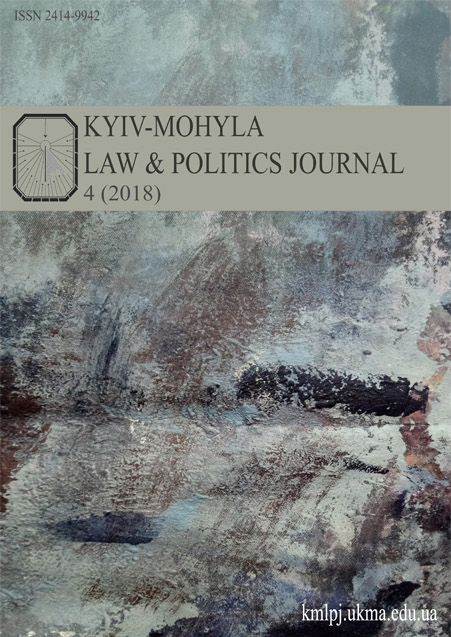Impact of the EU-Georgia Association Agreement on the Legal Order of Georgia
DOI:
https://doi.org/10.18523/kmlpj153251.2018-4.53-64Keywords:
EU, Georgia, association agreement, national positioning, approximation mechanisms,Abstract
The EU law as normative power is capable of affecting the legal order of non-member countries in different ways. This chapter addresses the commitments which Georgia has imposed on itself, be that on the basis of unilateral acts or in the framework of an international agreement, and are aimed at approximating the Georgian law to that of the EU. Obviously, in this sense, commitments undertaken under the EU-GeorgiaAssociation Agreement are of great significance. The chapter explores Georgian approach to the EU law which is reflected in unilateral acts adopted by the Georgian lawmaker. Furthermore, particular attention is given over to commitments assumed under the EU-Georgia Association Agreement, especially to preserve and respect common values and to approximate Georgian laws to EU norms. It is argued that the EU law will be — especially through the Association Agreement — a decisive factor in the further development of the Georgian legal order.
References
- Conclusion of the European Council, June 16, 2006.
- European Union—Georgia Association Agreement, GOJ, 2014, L 261.
- Gabrichidze, G. “Legislative Approximation and Application of EU Law in Georgia.” In Legislative Approximation and Application of EU Law in the Eastern Neighbourhood of the European Union. Towards a Common Regulatory Space?. Ed. P. Van Elsuwege, R. Petrov, 179–191. Oxford: Routledge, 2014. https://doi.org/10.4324/9780203799178-10
- “Implementation of the EU-Georgia Association Agreement and Association Agenda 2014–2017.” Office of the State Minister of Georgia, July 2017. Accessed December 23, 2018. http://www.eu-nato.gov.ge/sites/default/files/400%20CALI_New_ Action%20Plan%20ENG%202107%20axali.pdf.
- Lazowski, A. “Enhanced Multilateralism and Enhanced Bilateralism: Integration without Membership in the European Union.” Common Market Law Review 45.2 (2008): 1433–1458.
- Resolution of the Parliament of Georgia “On the Harmonisation of Georgian Legislation with that of the EU.” September 2, 1997, No. 828-Is.
- “The Rules of Procedure of the Parliament of Georgia.” Accessed December 23, 2018. http://www.parliament.ge/files/819_18559_127313_reglamenti.pdf.
- Van der Loo, G. “The EU-Ukraine Deep and Comprehensive Free Trade Area: A Coherent Mechanism for Legislative Approximation?” In Legislative Approximation and Application of EU Law in the Eastern Neighbourhood of the European Union. Towards a Common Regulatory Space?. Edited by P. Van Elsuwege, R. Petrov, 63–88. Oxford: Routledge, 2014. https://doi.org/10.4324/9780203799178-5
Downloads
Published
How to Cite
Issue
Section
License
Copyright (c) 2018 Gaga Gabrichidze

This work is licensed under a Creative Commons Attribution 4.0 International License.
Kyiv-Mohyla Law and Politics Journal provides free access to original research without restriction barriers (i.e. subscription fees, licensing fees etc.).
Unless otherwise indicated, content is licensed under the Creative Commons Attribution 4.0 International (CC BY 4.0) license, which means you are free to:
distribute, remix, tweak, and build upon your work, even commercially
...provided that any use is made with attribution to author(s) and Kyiv-Mohyla Law and Politics Journal.
The copyright in the article or any other submission to Kyiv-Mohyla Law and Politics Journal shall remain with the author(s).
The journal allows the author(s) to hold the copyright without restrictions and will retain publishing rights without restrictions.





